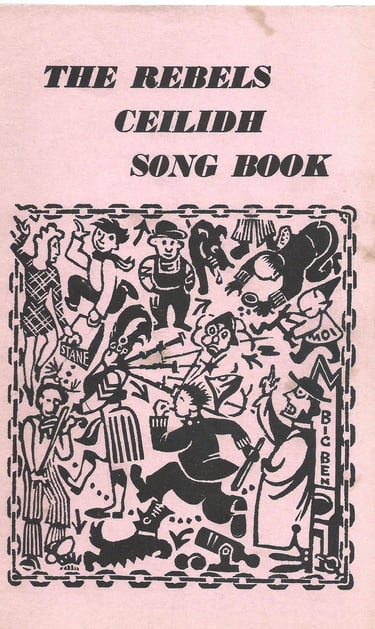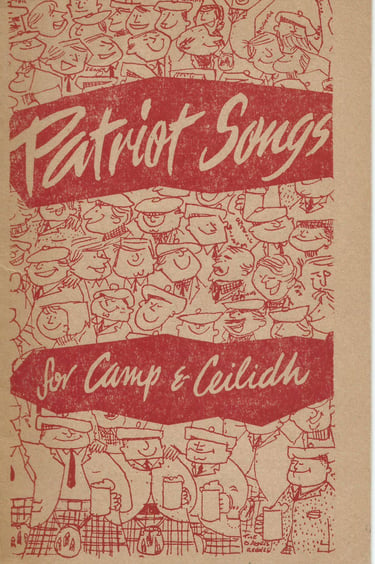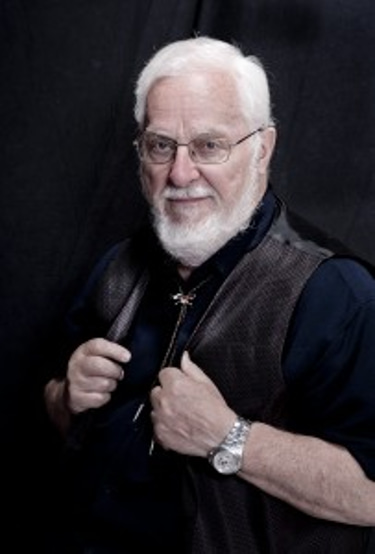Aa Breenge In - The Works Of Morris Blythman
FROM THURSO TO BERWICK
The three ‘big men’ of the Scottish Folk Revival were Hamish Henderson, Morris Blythman and Norman Buchan. Hamish and Morris were both born in 1919.
Glasgow-based Morris was just as influential as Hamish, but is much less known now. He wrote songs under the name of Thurso Berwick. Morris got Hamish to write the Freedom Come-All-Ye. Morris found and fitted the Breton tune everyone now sings The Twa Corbies to. He got major poets of Scotland to write anonymously the 1951 Sangs O The Stane, co-created the Bo’ness Rebels Literacy Society which published the two key Bo’ness 1950s collections of traditional and new political songs that every young revivalist singer learned from, wrote the Republican songs and then most of the Holy Loch demo songs, and led the Eskimos who sang them in the Holy Loch demos and on the Ding Dong Dollar LP, his key collaborator being Jim Maclean. Morris started the very first folk club in Scotland in Allan Glen’s School in Glasgow, and brought there Josh Macrae and Jeannie Robertson, from which came Robin Hall, Andy Hunter, Nigel Denver, me and others. Morris encouraged and supported Josh Macrae, Jimmie Macgregor, Alastair McDonald and many more.


Morris was a leading member of the Bo'ness Rebels.
From 1948 to 1967 the Bo’ness Rebels Literary Society celebrated in ceilidh and print the revitalisation of Scottish musical and political culture and the development of Scottish political songmaking. Songs were created and sung about The Lifting of the Stane, bombing EIIR pillar boxes, the Holy Loch Eskimo protesters, and much more.
In a 1994 article for the Scots Independent Angus McGillveray explained why he had just edited a booklet of songs drawn from the three small Bo’ness Rebel collections of song lyrics, The Rebels Ceilidh Song Book, Patriot Songs for Camp and Ceilidh, and The Rebels Ceilidh Song Book No 2. These had been of vital importance in the development and dissemination of political song in Scotland in the 1950s and 1960s.
“The first Bo'ness Rebels Ceilidh Song Book came out in 1951, and after several editions of the "Rebel" and "Patriot" song books the most recent one appeared in 1965. [In fact the first book was published in late 1954, and the last one in 1966.] These were exciting times and I daresay the wee books helped in some measure to reinstate Folk-song in Scotland at that time.
"The Bo'ness Ceilidh was always a source of wonder to me; how Willie Kellock managed to get all those talented people from everywhere, from Brass Bands to Mod Gold Medalists, from the Fianna na-h-Alba to the much respected Patriotic orators Oliver Brown, Robert Blair Wilkie, Wendy Wood, Hugh MacDiarmid, Hamish Henderson of the School of Scottish Studies, Norman McCaig, Seumas MacNeill the Principal of the College of Piping, Thurso Berwick and many many others.
It was great to feel your blood rekindling in your veins by songs from MacGregor Kennedy and the Inverscotia Singers or an old haunting Gaelic air by Dolina MacLennan, the rousing ‘Stirling Brig’ by Hugh MacDonald, Port a Beul from Kitty MacLeod or a laugh when John McEvoy sang his ‘Wee Magic Stane’ - they made everyone present proud to be a Scot.”
Angus MacGillveray


